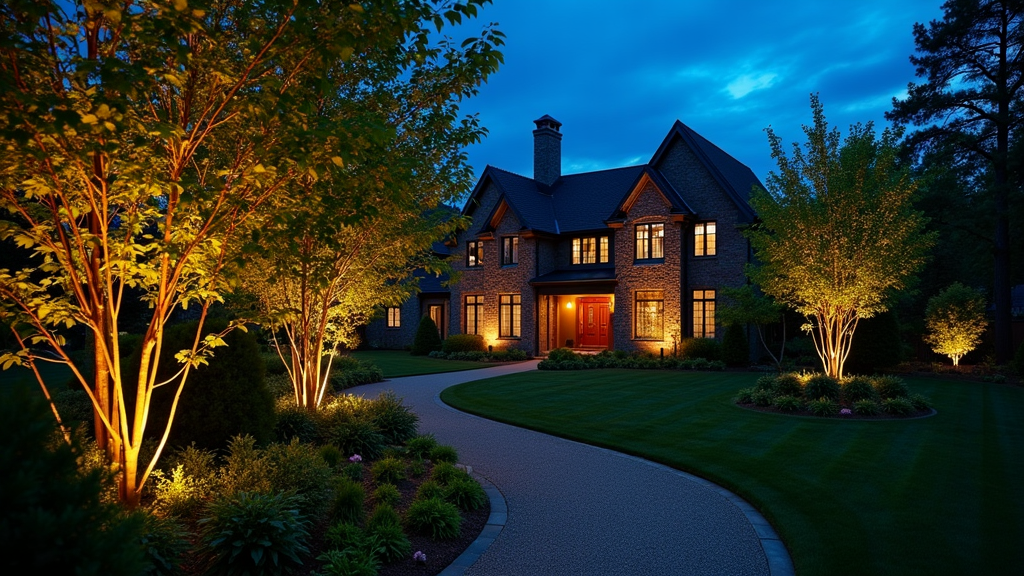Introduction
In the hustle and bustle of modern life, finding tranquility becomes essential. A Zen garden offers peace through simplicity and natural beauty. If you’re a North Carolinian yearning for a serene outdoor space, look no further than crafting your own Zen garden. This article will explore not just the aesthetics but the philosophy behind landscape design in North Carolina, ensuring your garden reflects both your personality and the soothing essence of nature.
Crafting a Zen Garden: Tranquil Landscape Designs for NC Homes
Creating a Zen garden isn't merely about arranging rocks and raking gravel; it’s an art form that embodies mindfulness and serenity. The beauty of these gardens lies in their ability to evoke peace while integrating seamlessly with the natural landscape. Here’s how you can start this transformative journey.
Understanding Zen Gardens
What is a Zen Garden?
A Zen garden, or "karesansui," originated in Japan as an expression of nature in its most simplified form. These gardens are typically dry landscapes featuring elements such as sand, gravel, stones, and sometimes plants—all arranged to create a harmonious space that invites contemplation.
The Philosophy Behind Zen Gardening
Zen gardening reflects Buddhist principles centered around meditation and harmony with nature. Every element has significance; for instance, rocks symbolize mountains while raked patterns represent rippling water. Understanding this philosophy is crucial when designing your own tranquil retreat in North Carolina.
The Benefits of Having a Zen Garden
Mental Clarity and Stress Relief
Incorporating a Zen garden into your landscape design can significantly reduce stress levels. The act of raking gravel or simply observing the elements promotes mindfulness, which leads to mental clarity.
Enhancing Your Home's Aesthetic Appeal
A well-designed Zen garden adds a unique charm to your home’s exterior. It creates an inviting atmosphere, making your property stand out among others in North Carolina neighborhoods.
Landscape Design Principles for NC Homes
Incorporating Local Flora
North Carolina boasts diverse plant life that can enhance your Zen garden's aesthetic appeal. Consider native species like ferns or dogwoods that thrive in local soil conditions and climates.
Balancing Hardscape and Softscape Elements
Successful landscape design requires balance between hardscape (rocks, paths) and softscape (plants). Striking this balance creates visual interest while adhering to the calming principles of Zen gardening.
Choosing the Right Location for Your Zen Garden
Factors to Consider When Selecting a Spot
- Sunlight Exposure: Ensure your chosen location receives adequate sunlight. Proximity to Home: A space near your living area can encourage frequent use. Natural Views: Positioning your garden where it overlooks beautiful scenery enhances its tranquil effect.
Creating Privacy Around Your Zen Space
Using natural barriers like hedges or fences can provide seclusion, making your Zen garden feel more intimate. Consider using bamboo or evergreen plants for effective screening.
Essential Elements of a Zen Garden
Rocks: The Foundation of Serenity
Rocks are symbolic in a Zen garden—they represent mountains or islands within water. Choose various sizes and shapes for visual diversity while ensuring they are arranged thoughtfully.
Sand and Gravel: Symbolizing Water
Raked sand or gravel mimics flowing water—an essential feature in any traditional Japanese garden. Regularly maintain these patterns to preserve their symbolism.
Incorporating Water Features
The Sound of Water: Calming Effects
Adding small water features like ponds or fountains introduces soothing sounds that enrich the sensory experience of being in the garden.
Lighting Design for Your Zen Garden
Soft Lighting Options
Consider using solar lights or lanterns to illuminate pathways without overwhelming the senses during nighttime hours. Soft lighting encourages evening relaxation sessions amidst nature.
Maintaining Your Zen Garden
Seasonal Care Tips
Keeping your garden pristine involves seasonal maintenance:
- Spring: Rake fresh gravel; prune overgrown plants. Summer: Water regularly; remove weeds. Fall: Clear leaves; prepare for winter weather.
Personalizing Your Space
Artistry Through Accessories
Add unique touches such as sculptures or handmade pots that resonate with you personally while retaining the overall tranquility of the space.
FAQs about Crafting a Zen Garden
1. What materials do I need to start my own Zen garden?
You’ll need rocks, sand or gravel, plants (preferably native), and possibly wooden elements like benches or pathways.
2. How much space do I need for my Zen garden?
Even small areas can accommodate a peaceful retreat; aim for at least 50 square feet to allow room for essential elements without feeling cramped.
3. Can I include flowers in my zen garden?
While traditional gardens often focus on minimalism, incorporating carefully selected flowers can add color without disrupting harmony if balanced properly with other elements.
4. How do I maintain my zen garden year-round?
Regular maintenance includes raking gravel patterns, watering plants appropriately during dry spells, removing debris seasonally, and pruning when necessary.
5. What are some common mistakes when creating a zen garden?
Avoid overcrowding with too many plants or decor items; simplicity is key! Also ensure there is balance between hardscapes and softscapes.
6. Are there specific plants recommended for NC's climate?
Yes! Native species such as ferns, azaleas, and dogwoods thrive well here—choose those suited to dappled sunlight conditions typical within many North Carolina landscapes!

Conclusion
Crafting a zen garden is more than just an exercise in landscape design; it’s an invitation to engage with nature meaningfully—a chance to slow down amid life’s chaos right here in North Carolina homes! By understanding both the artful arrangement of physical elements as well as embracing their deeper meanings rooted within Buddhist philosophy—you're not only enhancing curb appeal but also nurturing personal well-being through mindful presence within this tranquil environment you've created! Whether you're contemplating ways to incorporate local flora into this serene sanctuary or pondering on adding calming sounds via water features—the foundation remains grounded upon simplicity leading towards greater fulfillment over time spent outdoors immersed amongst http://paxtontpih388.tearosediner.net/landscaping-stokesdale-embracing-the-local-climate beauty found within nature itself!
So why wait? Dive into creating your own piece of paradise today!